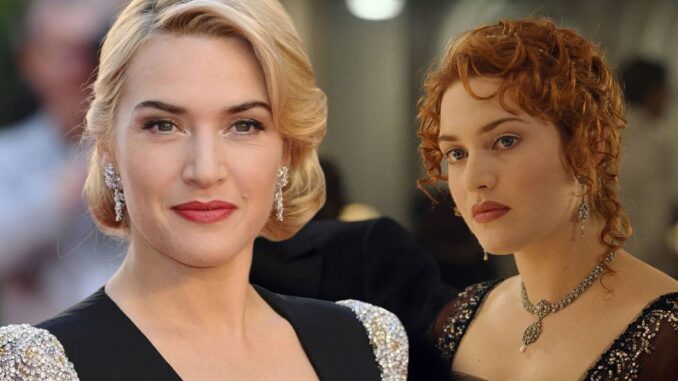
Why Kate Winslet Was Truly Afraid of James Cameron During Titanic Filming
The enduring image of Kate Winslet as Rose DeWitt Bukater, windswept at the bow of the Titanic, is etched into the collective consciousness. It is a portrait of ethereal beauty and burgeoning defiance, a symbol of cinematic romance and tragic grandeur. Yet, beneath the veneer of iconic artistry, the filming of James Cameron's magnum opus was a crucible, a grueling marathon that forged legends but also tested the very limits of human endurance. For a young Kate Winslet, then barely out of her teens, the fear she felt towards her director, James Cameron, was not a mere professional trepidation but a multi-faceted, palpable dread born from an alchemy of ambition, pressure, and an uncompromising vision.
Firstly, Winslet was stepping into the arena of a director already known for his Herculean demands and singular, almost tyrannical, control. James Cameron was not just a filmmaker; he was a titan, a "King of the World" even before Titanic earned him the moniker. His prior works – The Terminator, Aliens, The Abyss, Terminator 2: Judgment Day – showcased a visionary who built worlds from scratch, pushed technological boundaries, and expected nothing less than absolute devotion and perfection from his cast and crew. For Winslet, a British actress known for more intimate, character-driven dramas like Sense and Sensibility, stepping onto the Titanic set was akin to being dropped into a military operation commanded by a brilliant but ruthless general. Cameron's intensity was legendary, his focus unyielding, and his temper, when provoked by perceived incompetence or lack of commitment, a force to be reckoned with. This pre-existing reputation, coupled with his on-set demeanor, naturally instilled a sense of profound respect intertwined with genuine fear.
Secondly, the sheer scale and stakes of Titanic were unprecedented, creating an environment ripe for immense pressure. With a budget spiraling towards and eventually exceeding $200 million (an unthinkable sum at the time), the film was a colossal gamble, a make-or-break proposition for everyone involved. Cameron himself carried the weight of this gamble on his shoulders, and that burden translated into an almost frantic need for absolute precision in every frame, every performance. Winslet, as one of the two leads, felt the direct brunt of this pressure. She wasn't just playing a character; she was embodying the emotional core of a historical tragedy, tasked with anchoring a story of love against a backdrop of impending doom. The knowledge that a misstep, a faltering performance, could jeopardize this entire, monstrous endeavor must have been terrifying. Cameron's relentless pursuit of his vision meant that no detail was too small to escape his scrutiny, and no take was complete until it matched his exacting, internal blueprint.
Beyond the psychological weight, there was the brutal, physical reality of the shoot itself. Filming Titanic was an ordeal. Weeks bled into months in the gargantuan water tanks, where the "warm" water was often merely lukewarm and the air above it frigid. Winslet, a trooper by all accounts, battled hypothermia, exhaustion, and what she later described as a feeling of being "really afraid" of the water, and by extension, of the never-ending demands that kept her in it. Reports from the set spoke of relentless 16-hour days, frequent illness among the cast and crew, and a pervasive sense of being pushed to the brink. Cameron, himself a workhorse, expected nothing less from his cast, famously refusing to allow bathroom breaks during long scenes and pushing through sickness. This unyielding physical demand, orchestrated by the director, added another layer to Winslet's fear: the fear of physical collapse, of not being able to meet the almost inhumane requirements of the role, and of disappointing the man who was sacrificing everything for his vision.
Finally, Winslet's youth and profound dedication to her craft played a significant role. At 21, she was deeply committed to delivering an authentic, powerful performance. This commitment made her more vulnerable to Cameron's intense direction. Her fear wasn't merely a fear of a "mean boss," but a deeper fear of not being good enough, of failing to rise to the occasion of such an immense project. She wanted to be great, and Cameron was the maestro demanding perfection. He knew how to push her buttons, how to extract the raw emotion he needed, and sometimes that process was uncomfortable, even frightening, for the actor being pushed. The artistic results speak for themselves, but the journey was undeniably fraught.
In retrospect, Kate Winslet's fear of James Cameron during Titanic filming was not a simple emotion but a complex tapestry woven from his formidable reputation, the crushing pressure of the production's scale, the physically grueling conditions, and her own profound commitment as a young artist. It was the fear of the unknown, the fear of failing to meet the demands of a relentless visionary, and the fear of the very process that ultimately forged an unforgettable performance. While the two have since expressed mutual respect, the intensity of that period left an indelible mark, reminding us that sometimes, the greatest art is born from the most challenging of crucibles.